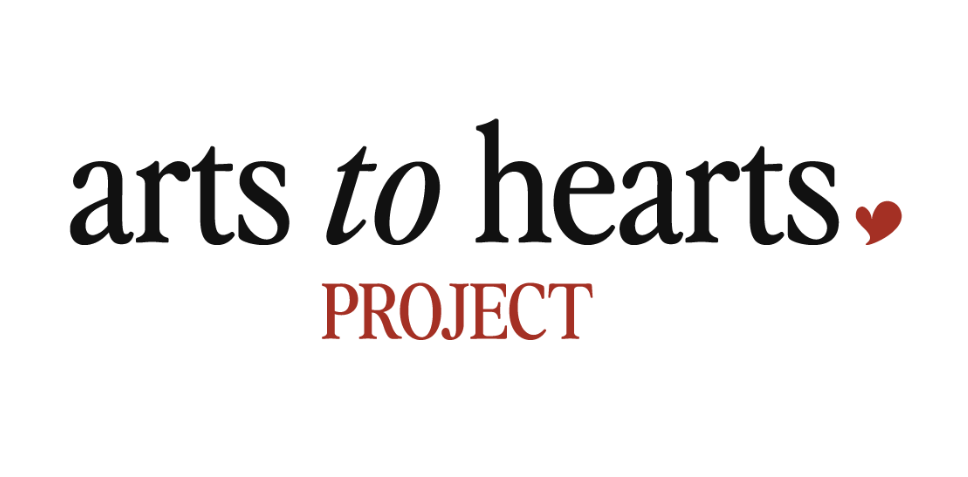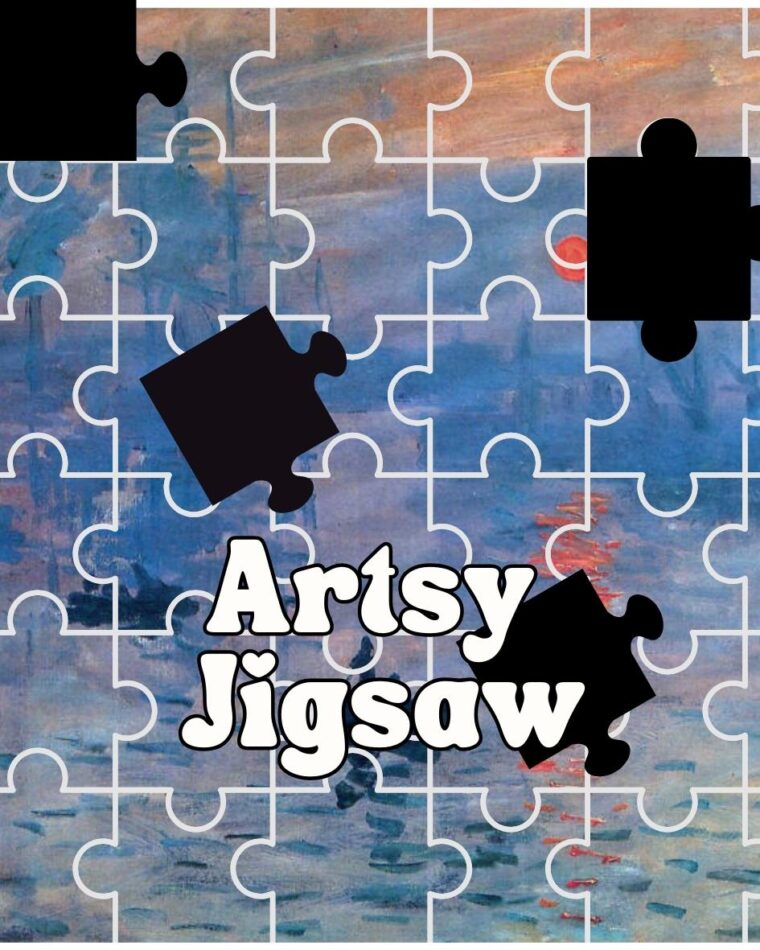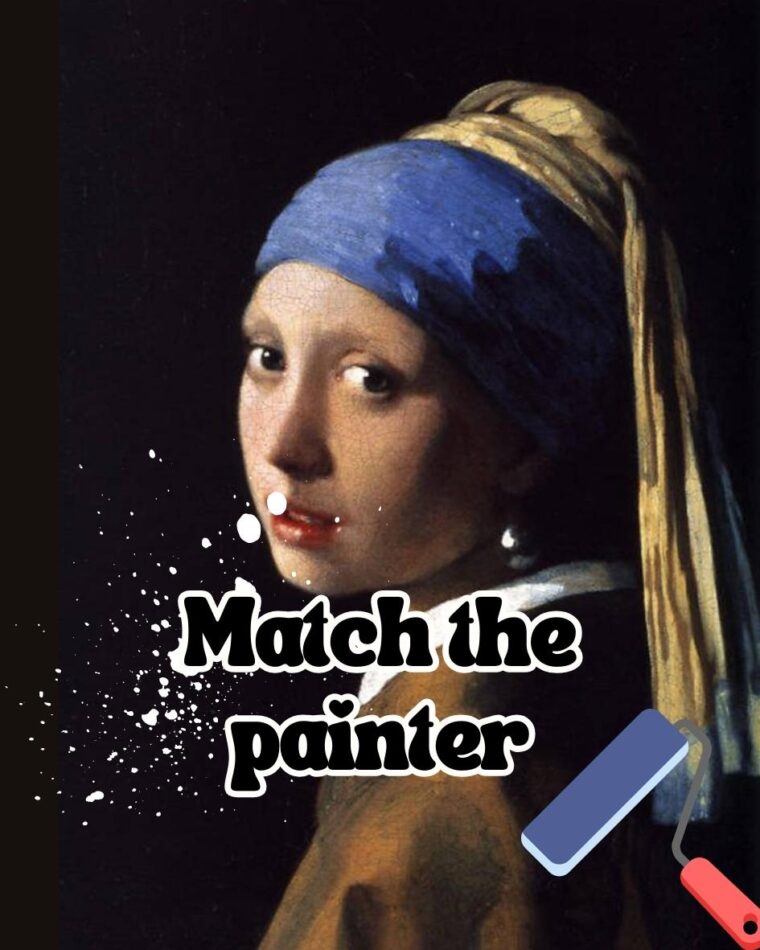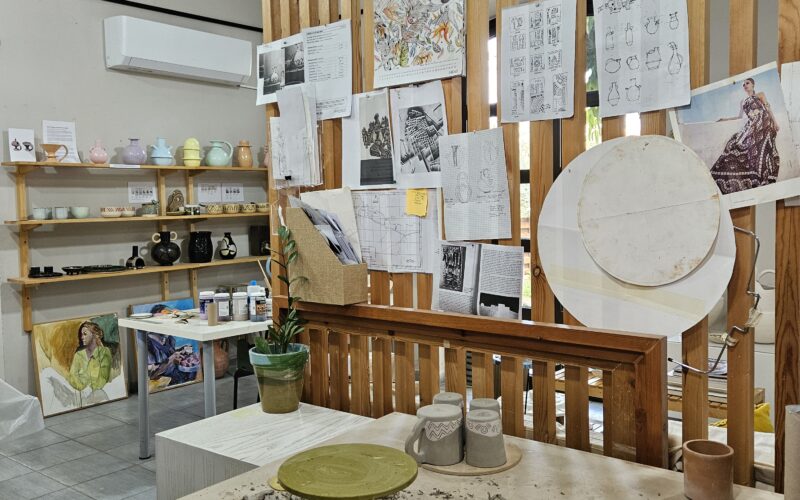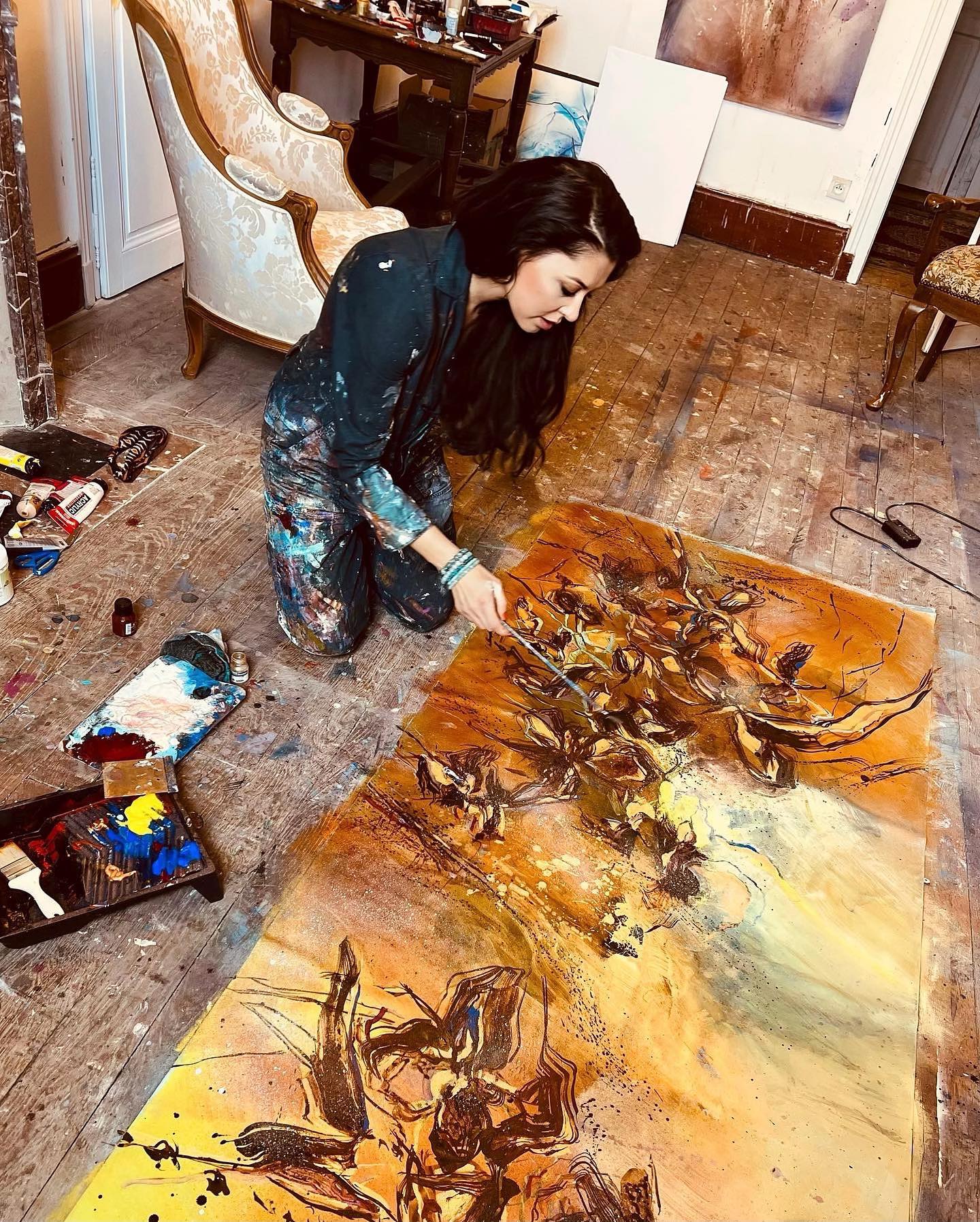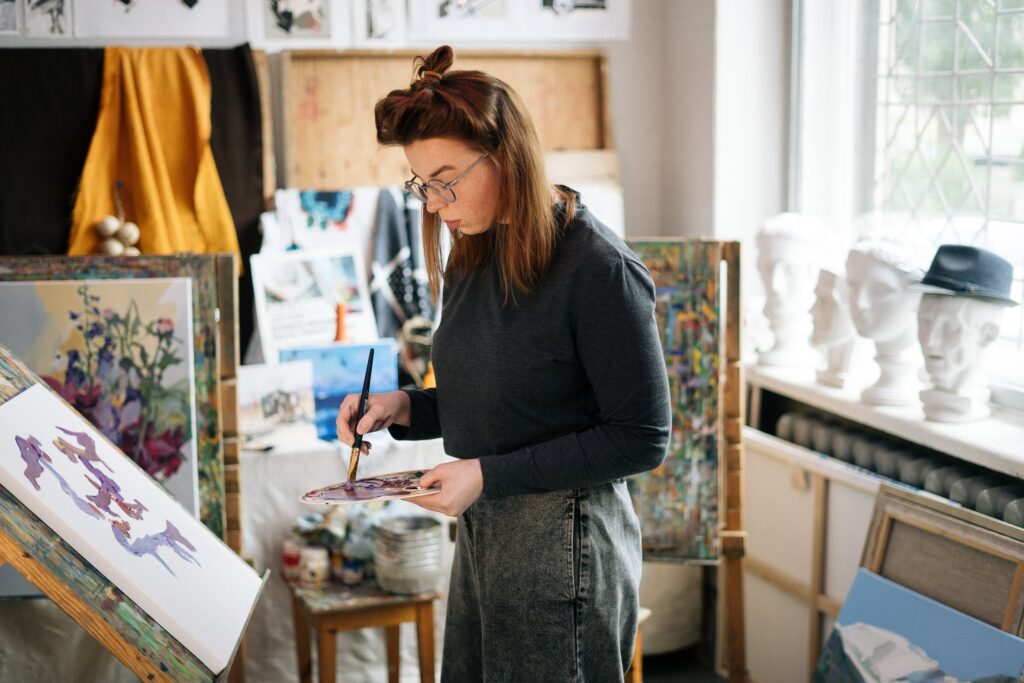
How to Host Art Workshops to Share Your Skills and Earn Income


You know that thing you do with your hands, your heart, and maybe a few brushes, tools, or scraps of fabric? Yeah, that creative magic? Other people want to learn it.
And guess what? Teaching art workshops can be a great way to not only share your skills with others but also bring in real, repeatable income without depending on galleries or commissions.
Whether you’re a painter, collage artist, ceramicist, printmaker, or fiber wizard, teaching workshops can help you build a community, grow your practice, and yes, make money doing what you love.
But how do you even start to host Art Workshops? And more importantly, how do you make it worth your time?
Let’s break it down, step by step, with real numbers, smart strategies, and zero filler.

Why Art Workshops? Because They’re Low Risk and High Impact
Here’s the truth: you don’t need to be “famous” to teach. You just need to know more than the people you’re teaching, and trust me, you probably already do.
And from a financial standpoint? Art workshops are one of the few creative income streams where you can set your own rates and control your costs.
- A small group Art Workshop (6–10 people) at $40 per person = $240–$400 per session
- Run just two per month and you’re earning $480–$800, often in a few hours
- According to a 2022 report by Eventbrite, creative art workshops are one of the fastest-growing event categories, especially in cities and online
Step 1: Decide What You’re Teaching
Don’t overthink it. People are not looking for a masterclass in Renaissance theory, they want something fun, useful, or relaxing.
Ask Yourself:
- What do people always ask me about?
- What have I mastered that used to confuse me?
- What could a total beginner learn from me in 2–3 hours?
Art Workshop Ideas:
- Watercolour for beginners
- Collage & mindfulness
- Intro to hand embroidery
- Make-your-own zines
- Printmaking at home (using vegetables, foam, or household tools)
- DIY cyanotypes or eco-dyeing
Start with something you know inside out, and keep the goal simple: participants should leave with something they made, learned, and enjoyed.
Step 2: Choose a Format, In Person or Online?
Option A: In-Person Art Workshops

- Pros: Tactile experience, more personal, easier to build local community
- Cons: You need space, materials, and possibly insurance
Where to host?
- Community centers
- Co-working spaces
- Art supply stores (yes, they often rent out classroom space!)
- Libraries or universities
- Your own studio or home (if you’re insured + it makes sense)
Some spaces offer a 70/30 or 60/40 revenue split instead of an upfront rental fee; always ask.
Option B: Online Art Workshops (Zoom, Google Meet, or pre-recorded)
- Pros: No venue needed, global reach, no travel
- Cons: Harder to create hands-on experience, tech learning curve
You can teach live or create a digital art workshop series and sell it repeatedly via Gumroad, Teachable, or even Instagram.
Step 3: Price It Right
This is where many artists struggle. But your time, prep, and knowledge are worth something, don’t price like you’re doing someone a favor.
Pricing Formula:
(Hourly teaching rate + prep time + material costs + venue costs) ÷ max # of students = per person fee
Let’s say:
- Teaching time: 3 hrs
- Prep: 2 hrs
- Your rate: $25/hr = $125
- Supplies per person: $5
- Venue: free (community space)
If 10 people attend:
- Total cost: $125 + $50 = $175
- Divide by 10 = $17.50 per person (but that’s breakeven)
So charge at least $35–$45, so you walk away with $175–$250 in profit. This is totally fair.
If materials are provided, bundle them in. If not, send a supply list beforehand.
Here’s a pie chart showing the typical cost and profit breakdown for a small art workshop. As you can see:
- 40% is profit (your actual take-home)
- 25% goes to teaching time
- The rest covers prep time, materials, and any venue costs
This visual helps highlight that, with good planning, art workshops can be both sustainable and profitable, even without charging sky-high fees.

Step 4: Promote Like a Real Human
You don’t need a huge following, just a few people who are curious and interested.
Smart Ways to Promote:
- Instagram posts + Stories (share behind-the-scenes: prepping kits, space setup, past art workshops)
- Email your contacts: past buyers, friends, newsletter subscribers
- Post in local Facebook groups (search: “Art in [Your City]” or “Creative Events”)
- List it on Eventbrite, Meetup, or Airbnb Experiences
- Ask a few friends to share your art workshop poster or story
Use visuals. People want to see what they’re signing up for. Even a simple video or timelapse of your art process gets way more attention than a plain text post.
Step 5: Make It an Experience
This is what gets people coming back and telling their friends.
Add Small Touches:
- Play a custom playlist
- Offer light snacks or tea (if in-person)
- Give out printed mini zines, supply lists, or stickers
- End with a casual Q&A, group photo, or social share
You’re not just teaching, you’re hosting. Make them feel like they were part of something special.
Step 6: Collect Feedback and Reuse It
At the end, hand out a short feedback form (online or printed). Ask:
- What did you enjoy most?
- What could be improved?
- Would you recommend this to a friend?
Then screenshot or save the positive feedback. These are your future testimonials!
You can reuse them on:
- Your website or portfolio
- Social media posts
- Event pages for your next workshop
Step 7: Repeat, Refine, and Grow

Here’s where it gets fun. Once you’ve run one or two successful workshops:
- Raise your rates slowly
- Offer series or themed bundles (e.g., “Intro to Mixed Media – 3 Weeks”)
- Start a waitlist
- Partner with other creatives for combo classes (e.g., “Poetry + Painting Night”)
You’ll get more confident, your name will spread, and you’ll build a little ecosystem around your creativity—one where you’re not waiting for permission from galleries or institutions.
Use Open Call Platforms That Offer Virtual Spaces to Host Your Workshop or Exhibition
Here’s something not every artist knows: Some open call platforms don’t just help you apply to opportunities, they actually give you the tools to host your own virtual exhibition, solo show, or even workshop. That means you don’t need a gallery, a studio, or a big budget to get your work (or your skills) in front of the world.
One such platform is Open Call for Artists. They’ve carved out a niche by offering artists access to their digital gallery space, a curated, professional-looking virtual environment where you can:
- Show your work in a solo exhibition
- Host a live or recorded workshop
- Run artist talks or mini lectures
- Share links to sell your artwork or book services
What You Get:
- 3D Virtual Exhibition Room: Your work is displayed in a real gallery-like layout that viewers can walk through online.
- Personalized URL: You get a direct link to share your show with collectors, curators, or your followers.
- Global Access: Your audience isn’t limited by geography, anyone, anywhere can “visit” your exhibition.
- Promotional Support: Many platforms will feature your show on their homepage, newsletters, or Instagram.
Why It’s a Smart Move:
- Cost-Effective: A physical solo show can cost hundreds (or thousands) between space rental, refreshments, and install. A virtual show? Often under €150–€200.
- Professional Presentation: Looks polished and curated—perfect for grant applications, press outreach, or your portfolio.
- Hands-Free Hosting: Many platforms will handle the setup, tech, and backend so you can focus on your art or workshop content.
You can even combine a virtual exhibition with a live online workshop. For example, run a short painting demo inside your virtual gallery space as a live event, then invite people to walk through your show afterward.
Teaching is Empowering For You and Your Students

Art workshops aren’t just about income (though yes, that part helps). They’re about connection, empowerment, and giving people a window into what it means to create with their own hands.
You don’t need a certificate or a fancy studio. You just need to start.So if you’ve been thinking, “I’d love to teach someday…”
Here’s your nudge: Start now. Your future students are waiting. And join the Arts To Hearts Project for more useful insights.

